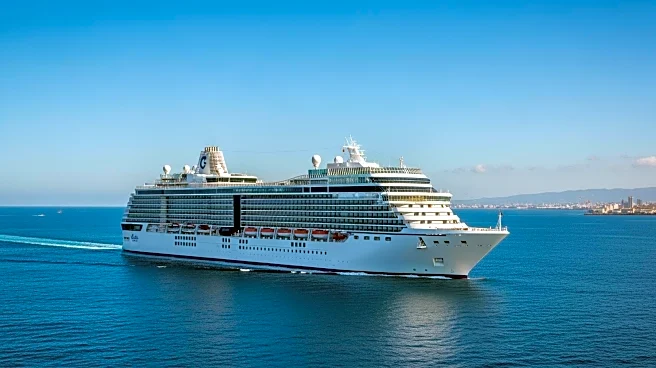What's Happening?
China has introduced new 'special port fees' for visiting cruise ships, effective October 14, as a reciprocal measure to U.S. port fees targeting Chinese ships. The fees apply to U.S.-owned or operated
ships, raising concerns about the impact on the cruise industry's planned port calls. The fees led to the diversion of the cruise ship Riviera from Shanghai to Busan, South Korea, due to the high costs. However, Royal Caribbean's Spectrum of the Seas received a waiver, highlighting China's selective application of the fees.
Why It's Important?
The introduction of special port fees by China represents a significant development in the ongoing trade tensions between the U.S. and China. The fees could deter U.S.-based cruise lines from scheduling port calls in China, affecting the cruise industry's operations and revenue. This move may also influence international trade relations and highlight the complexities of reciprocal economic measures. The selective application of fees could lead to strategic adjustments by cruise companies to mitigate costs.
What's Next?
Cruise lines may reconsider their itineraries and port calls in China due to the new fees. Companies like Disney Cruise Line are likely to cancel planned calls in Shanghai. The fees could lead to broader industry shifts, with cruise lines exploring alternative markets and routes. The situation may also prompt diplomatic discussions between the U.S. and China to address the economic implications of the fees.
Beyond the Headlines
The reciprocal port fees reflect broader geopolitical strategies and economic competition between the U.S. and China. The impact on the cruise industry highlights the interconnectedness of global trade and tourism. The situation may prompt discussions on the role of economic measures in international diplomacy and the potential for collaborative solutions.









